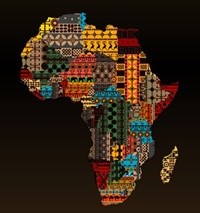More emphasis needs to be placed on trade partnerships between African countries to drive seamless intra-Africa trade, despite the growing number of international trade agreements such as AGOA (African Growth and Opportunity Act) and the recently announced Economic Partnership Agreement between European Union and Southern Africa.

© hibrida - Fotolia.com
African countries need to start pushing for trade agreements not only with international trading partners but also amongst themselves, as there are insufficient trade agreements in existence to encourage and drive intra-Africa trade. As a result, there tends to be a focus on doing business with regions outside of Africa, such as the US or China.
The DHL Global Connectedness Index revealed that Africa is the world's least connected continent, when considering the ease of moving people, trade, information and finance. All African countries should therefore be focused on developing connectedness on the continent and building trade relationships.
High external export
When comparing intra-regional trade statistics, Africa rates amongst the lowest, with less than 20% of what is produced in the region staying within the region. This means that over 80% of what is produced in Africa is exported, mainly to the EU, China and the US. By comparison, 60% of Europe's trade is with its own continent and in North America the figure is 40%.
As is well documented, one of the region's biggest challenges in terms of realising its trade potential is an underdeveloped infrastructure but this is slowly improving as several Africa regions continue to invest large amounts of capital into infrastructure development.
Underdeveloped infrastructure directly influences the speed at which goods are moved into, out of and across the region. It also drives up logistics costs and it is estimated that supply chain costs are up to nine times more expensive in Africa, in comparison to other regions in the world. These inflated costs also ultimately hamper economic growth in the region.
While progress on infrastructure development and investment should continue, a push now needs to be made by African countries towards developing and implementing trade agreements that will encourage trade between the regions.
Angola is the only country in Africa that has a formal and declared de minimus and, whilst all other Sub Saharan Africa countries have informal agreements, the fiscal clearance levels vary greatly. For example, in Tanzania, anything with a value greater than US $5 will require formal clearance, which creates an additional administrative burden and potential clearance delays with minimal returns for the government in terms of duty revenues.
The situation is improving and more countries are recognising that they need to find ways to make their markets accessible and easier to do business with. A great example for the region is Rwanda, which is looking to strip away bureaucracy, remove the red tape and make it an attractive destination for trade and investment. More African countries need to follow this example and the region will reap the rewards.































